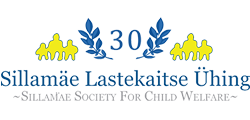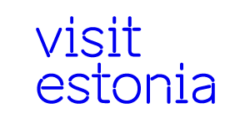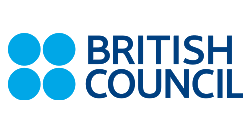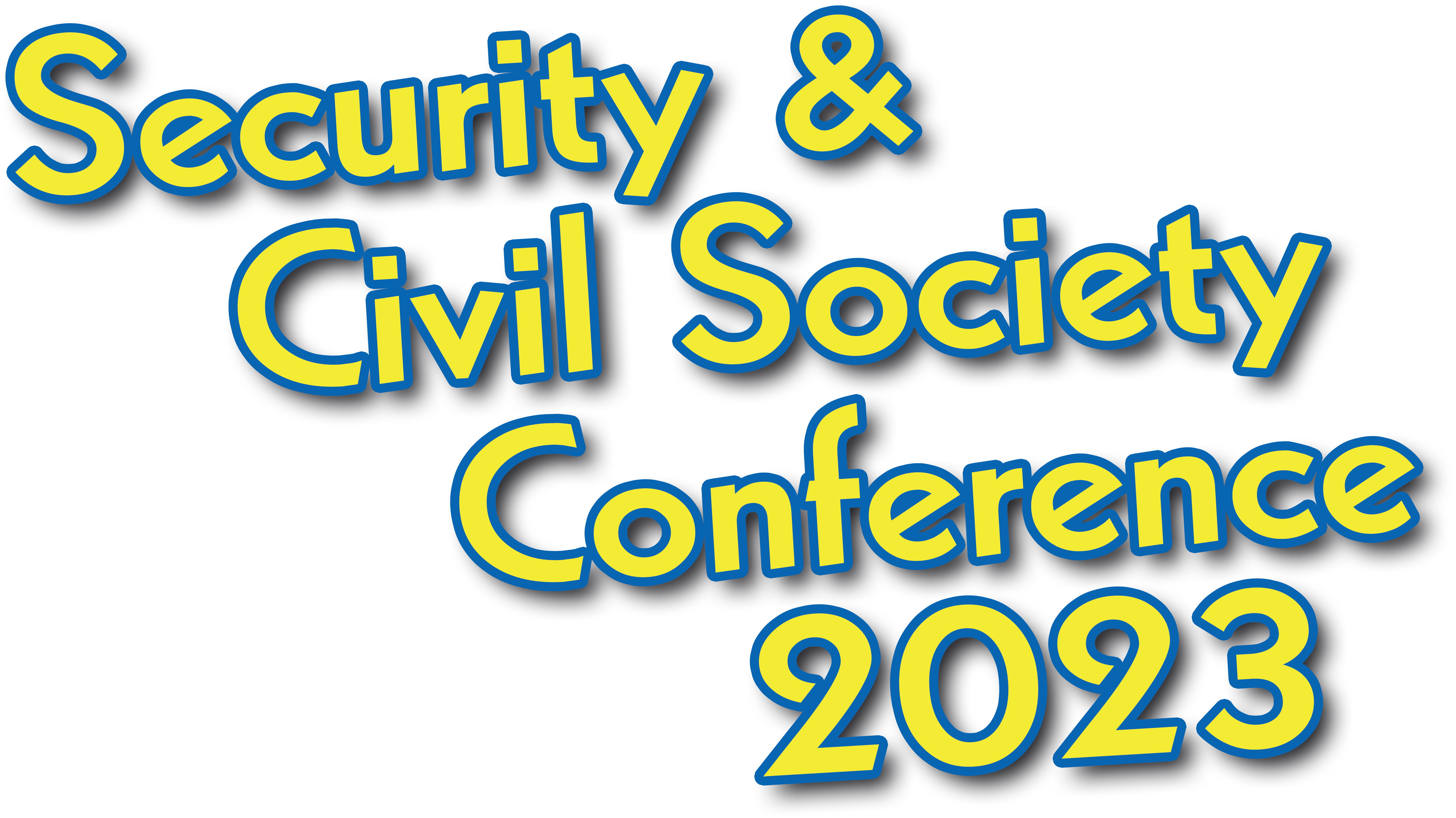 Security and Civil Society Conference 2023 PROGRAMME
Security and Civil Society Conference 2023 PROGRAMME
3–5 February, in Narva and Narva-Jõesuu
Wednesday, 1st February 2023
The arrival of Officials and Speakers in Tallinn
Thursday, 2nd February 2023
Arrivals and sightseeing’s in Tallinn
- The arrival of Delegates
- Registration to the Conference
- Preparation of Conference and at 13.00 – 14.00 pm visiting Government institutions and EU Representation in Estonia
- Sightseeing tours in Tallinn
- Departure at 17.00pm from Tallink Spa Hotel (Sadama 11a) to Narva-Jõesuu / Narva (Accommodation and Venue places)
- Arrival in Narva; Dinner in Hotels
- 21.00 – 22.00 Organising Committee meeting in Meresuu Spa Hotel
DAY ONE. Friday, 3rd February 2023.
OFFICIAL CONFERENCE DAY at Vaba Lava Theatre Centre, in Narva
Themes: civil society and democratic values; international community (IC) actions against Russian war in Ukraine; IC and CSOs planning for the future to recovery the Ukraine; Moldova as a new territory of potential war conflict?
09.00 – 10.00 Registration and coffee
10.00 – 11.30 The Opening Ceremony and keynote speeches
Moderator of the Conference: Amb. Hatem Atallah
- Welcome and keynote speech Urmas Reinsalu, Estonian Minister of Foreign Affairs (online)
- Welcome and keynote speech by Ursula Roosma, British Council (Estonia) – “Working with SCOs in Estonia (2016-2022) to build trust and understanding in the society”
- Welcome speech by Christer Haglund Director, Nordic Council of Ministers´ Office in Estonia
- Keynote speech by Daryna Skyba, All-Ukrainian movement “Let’s do it, Ukraine” – “Civil socity activism in example of Lets Do it World Cleanup campaign in time of war conflict in Ukraine”
- Keynote speech by Janne Rajala, President of Green Habito European Civil Society Network (Finland)
11.30 – 13.00 Round Table discussion with experts, delegates and interested members of the public
“Charting Ukraine’s Future in Europe as free, democratic sovereign state…” – as International community and CSOs affirming the vital importance of having their number intricately involved in efforts to rebuild Ukraine’s infrastructure and institutions, and contribute to sustainable reforms; not just as watchdogs, but as true partners throughout the process, where each party could make own valuable contribution. Despite the rapidly changing reality and the upcoming geostrategic changes, we will try to present a positive agenda for the development of events for Ukraine and the world community in achieving peace throughout the internationally recognized territory of Ukraine;
Moderator: Jean Kostrzewski, College of Europe (France/Poland)
Experts:
– “No Return Beyond This Point: A European Future for Ukraine“– Gert Antsu, Director of the Ukraine, Moldova and South Caucasus Division, Estonian Ministry of Foreign Affairs
– “Protection of constitutional democracy of Ukraine: The Strategic Deployments against cyber attacks and cognitive warfare within society and media”– Oleksandr Potii, Deputy Chairman of State Service of Special Communications and Information Protection of Ukraine (online)
– „Ukraine’s vibrant civil society role in post-war transformation”- Mariia Tyshchenko, Chairmen of All Ukrainian NGO “PORUCH”
– “Inclusion of war refugees and migrants into civil society by generating input in the social and economic development of Europe in example of Poland” – Tetiana Klaban, Coordinator of the Center for Social and Economic Development, Poland
12.40 – 13.00 Working groups (Raluca Raducanu, political consultant (Romania)
13.00 – 14.00 Lunch (on the first floor)
14.00 – 15.30 Round Table discussion with experts, delegates and interested members of public
“Moldova’s Future: East, West, or Somewhere in the Middle?” – To understand Moldova future we need to be able to understand existing factors and challenges what country and society are facing including internal and external actors who play the leading role in the future of Moldova.
Moderator: PhD Nikolai Tsvyatkov, Former Deputy chief at State Chancellery’ Bureau for reintegration politics (Moldova)
Experts:
– “The Transnistrian Issue: Moving beyond the Status Quo after Russian war in Ukraine” – Professor Stefan Wolff, Department of Political Science and International Studies, Professor of International Security, University of Birmingham (UK) online
– “Moldova is the next front of the Ukraine war?”, Ecaterina Cojuhari, Axis Mundi Swizerland (Geneva), Research and Consulting
– “Civil society input in ensuring Peace and Security in example of Transnistria peace education projects” – Nikolai Tsvyatkov, Espero NGO (Moldova)
– “EU role in supporting Moldova as state candidate for EU: by improving the rule of law and empowering development of democratic society” – Lena Andersson Independent Expert Balkans analysis group & Malmö University
15.30 – 16.00 Working groups (Ph.D Mette Brogden, The University of Arizona (USA)
16.00 – 16.15 Coffee break
16.15 – 17.45 Round Table discussion with experts, delegates and interested members of public
Mainstreaming more conscious Nordic-Baltic security policies to becoming NATO members and supporting sustainable development to become the world’s most sustainable and integrated region in 2030” – The Nordic countries share a common security environment, and are engaged in close foreign, security and defence policy cooperation. Nordic foreign, security and defence policy cooperation has deepened further in the past few years. The Nordic Defence Cooperation (NORDEFCO) is a good example of the closer cooperation. With Finland and Sweden as NATO members, the threshold for using military force in the Baltic Sea region will rise, which will enhance the stability of the region in the long term. NATO is a stabilising actor in the Baltic Sea region and from Russian perspective not at all. In 2022 the war in Ukraine has affected the world – as hard security as the digital sphere – in unforeseen ways. The intentional destruction of infrastructure in Ukraine, including digital infrastructure and cyber-attacks, illustrates the need for resilience in communication networks in order to prevent the risk of regions being isolated. It also demonstrates how important it is that we can rely on our communication networks to ensure availability and continuity of essential services for our citizens. Therefore, a high level of security in the digital services that our societies rely on, has become increasingly important.
Moderator: Vassili Golikov, Political Scientist
Experts:
– “NATO agenda and priorities for 2023: reinforcing cooperation” – Beata Patašova Programme Officer for Russia and East European partners Engagements Section Public Diplomacy Division (Belgium)
– “Use of new technology in military capacities: dissemination and combating of disinformation in Nordic and Baltic States” – Flemming Splidsboel Hansen Senior Researcher, Danish Institute for International Studies
– “The role of regional cooperation, international institutions and organisation in supporting peace, democracy and freedoms – Christer Haglund, Director of Nordic Council of Ministers’ Office in Estonia
– “How Nordic Civil Society could contribute to achieve sustainable development by becoming the world’s most sustainable and integrated region in 2030” – Jenni Kauppila, Advocacy Work Officer of UNA Finland Association (online)
17.45 – 18.15 Working groups: (Alejandra Hansen, YTOP Denmark)
18.15 – 18.30 The concluding remarks of the Conference by Moderator: Amb. Hatem Attallah.
19.00 – 21.00 Official Reception and Estonian Culture programme
DAY TWO. Saturday, 4th February 2023.
OFFICIAL CONFERENCE DAY at the Conference Centre of Meresuu Spa Hotell, Narva-Jõesuu
09.30 – 10.00 Elaborating Conference Declaration language on „Peace and Cooperation“
10.00 – 10.20 Summary of the agreements. The conference Moderator & Working Group Rapporteurs
10.20 – 11.00 Keynote speakers on Conference Themes & Goals
- “Global crises affecting European Security from the perspective of Tunisia” – Ambassador Hatem Atallah, (Tunisia)
- “Raising challenges in regional partnership for intercultural and civil society dialogue in the face of growing mistrust and polarisation” – Mostafa Abbas, President of the Euro-Med Youth Federation e. V., Germany (Member of Anna Lindh Foundation)
11.00 – 13.00 Round Table discussion with experts, delegates and interested members of public
Mediterranean region Global powers, region states and civil society contributions for peace, security and sustainable development – The mediterranean region continues to struggle with terrorism. Countries like Turkey and Egypt are still facing violent acts perpetrated by radical groups, a situation which affects the European security environment as a whole directly and indirectly the threat of terrorism emanating from Europe’s southern periphery. These risks are hardly new, but they have acquired new meaning in light of the sustained conflict and political instability around the southern and eastern Mediterranean, and the persistent economic and social pressures across southern Europe. Above all, terrorism concerns and counter-terrorism partnerships will underscore the strategic importance of the region on both sides of the Mediterranean at a time of flux in national, NATO and EU strategies. The Mediterranean security environment as a whole will continue to be strongly affected by this threat, and the continued recruitment of terrorists throughout the region. State fragility in the Euro-Mediterranean regions and possible intersections of terrorism with systemic security issues in the global sense, including climate change, maritime issues, and migration will be addressed alongside the wider dimensions of military issues, including the presence of major powers naval units in the mediterranean and how each country views the other’s long-term regional ambitions;
Moderator: Stefanos Vallianatos , Co-Founder of Fotoessa, Head of Greek Network of Anna Lindh Foundation (Greece)
Experts:
– “How does Russia’s invasion of Ukraine change the security architecture (institutions) in the Maghreb and the Sahel, and what does it mean for Europe? – PhD. Guadalupe Martínez Fuentes, Vicedean of Internationalisation, Faculty of Political Science, University of Granada (Spain)
– “Building European Resilience against violent extremism and polarisation in society on the question related with migration, security and far right violence” – Dr. Richard McNeil-Willson, Post-Doctoral Reseaarcher in the field of Terrorism and Political Violence, University of Leiden (Netherlands)
– „Conflict resolution in Europe: the role of civil society and intercultural dialogue in tackling conflicts in example of Turkey“ – Dimitris Triantaphyllou, professor, Kadir Has University in Istanbul (Turkey)
– “Greek CSOs experience in achieving SDGs and peace within diverse society” – Michael Kavuklis, Political Scientist, President of the House of Europe in Rhodes (Greece)
– Influence of the Mediterranean security dilemmas in the Arab Region and Europe: Tools and Strategies – PhD. Mahmoud Ezzat, Deputy Director of Center for Strategic Studies at Bibliotheca Alexandrina (Egypt) online
12.30 – 13.00 Working groups (Ivan Vasilevskikh, Copenhagen Business Academy (Denmark)
13.00 – 14.00 Lunch in Hotel restaurant
14.00 – 15.30 Round Table discussion with experts, delegates and interested members of public
Climate Change and Energy crises: Green Revolution still achievable by 2050? – Transforming global consumption patterns and investing in clean energy – As electricity prices surge on the back of dwindling gas supplies from Russia, calls are growing to bring relief to European households and businesses – some of which are being pushed to bankruptcy. The calls are being heard as EU energy ministers prepare to hold an extraordinary meeting to discuss the EU’s response to the crisis and of course to keep in agenda green revolution what EU agrees to achieve by 2050. Experts will provide own perspective on existing crises and update of EU energy and climate change policies.
Moderator: Ms. Anneli Ohvril, Let`s Do It World (Estonia)
Experts:
- Janne Rajala, Cloundon OY, Senior cloud architect (Finland)
- Malek Atallah, Wet Groupp (Tunisia)
- Madis Tilga, Advisor to the Nordic Council office in Estonia (online)
- Ingrid Nielsen. renewable energy expert, Estonian Fund for Nature
15.30 – 15.45 Elaborating Narva Declaration language on „Peace and Cooperation for Resilient Communities”.
15.45 – 16.00 The concluding remarks of the Conference by moderator: Amb. Hatem Attallah.
16.00 – 20.00 Estonian Culture Programm: Visiting: Vaivara Museum, Sillamäe City Museum and/or Mining Museum in Kohtla Nõmme at 17.00pm
Free time
DAY THREE. Sunday, 5th February 2023.
OFFICIAL CONFERENCE DAY at the Conference Centre of Meresuu Spa Hotell, Narva-Jõesuu and the Castle – Museum of Narva
09.00– 09.30 Official Presentation and adoption of Conference Declaration on „Peace and Cooperation“
09.30 – 10.00 Summary of the agreements – The conference Moderator & Working Group Rapporteurs
10.00 – 11.00 Conclusions and follow up activities for 2023 (Signing symbolic agreement of non formal network creation and conduction in Estonia of the annual conference by network)
11.00 – 11.30 Practical arrangements
11.30 – 12.00 Driving to Narva Castel
12.00 – 14.00 Official closing at Rondeel restaurant and Visiting Narva Musuem and Narva City
14.30 Departure to Tallinn, Bus to the airport
*[Conference Format Note: In order for all delegates and panelists to tease out the best ideas and strategies from every one of the delegates coming to this Conference, we are using in fram of working groups the Round Table / World Café format. This requires short (7-10 minute) presentations of key ideas and priorities by each of the 4-5 experts on the Panel. Moderator could ask 1-2 questions to each panelist. Later on they then come down from the Platform (or they continue online conversation with Virtual participants) and join Working groups (a Round Tables (by joining direct conversation with all virtual participants) of delegates and spend up to 30-minutes listening / challenging / contributing / discussing responses to these ideas + other priorities and strategies advanced by audience members. They then return to the Platform/Virtual scene and each expert reports back what they have learned from the delegates and what concrete suggestions / recommendations they would offer the Narva Declaration (political statement). Each session has a moderator, experts, working group facilitators and repartuer .

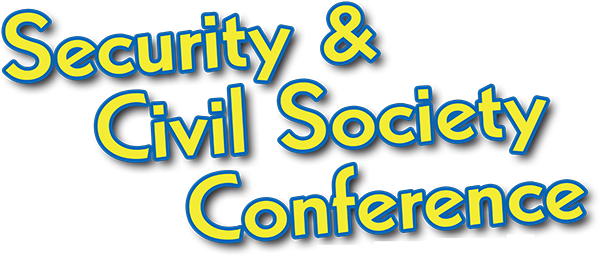



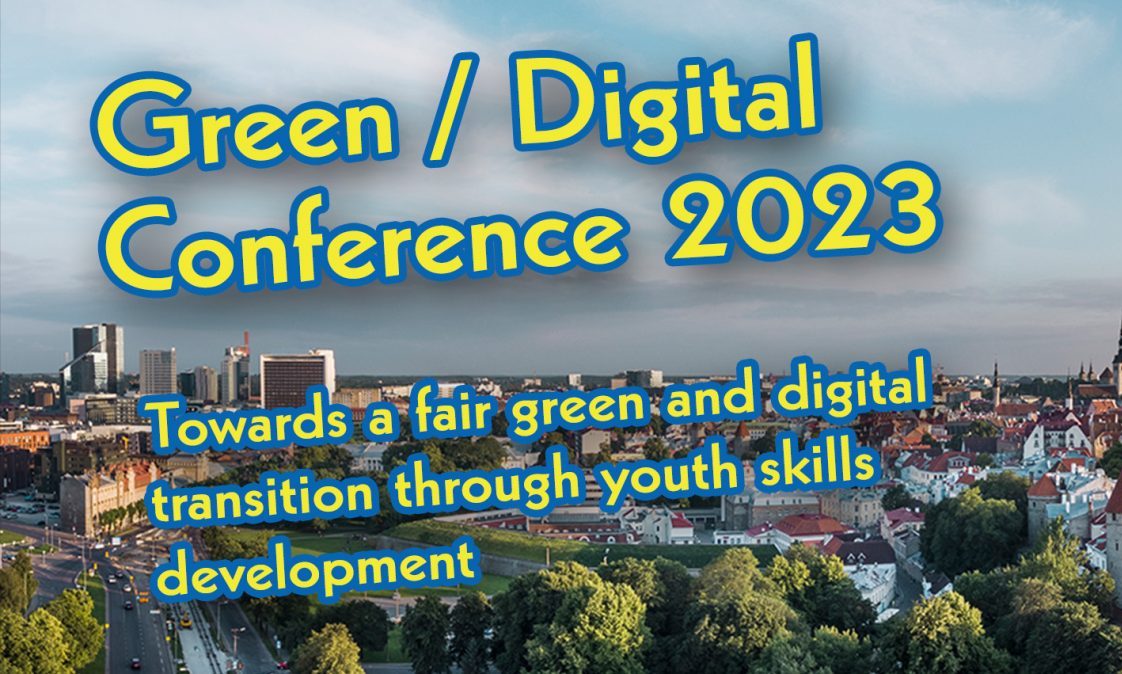
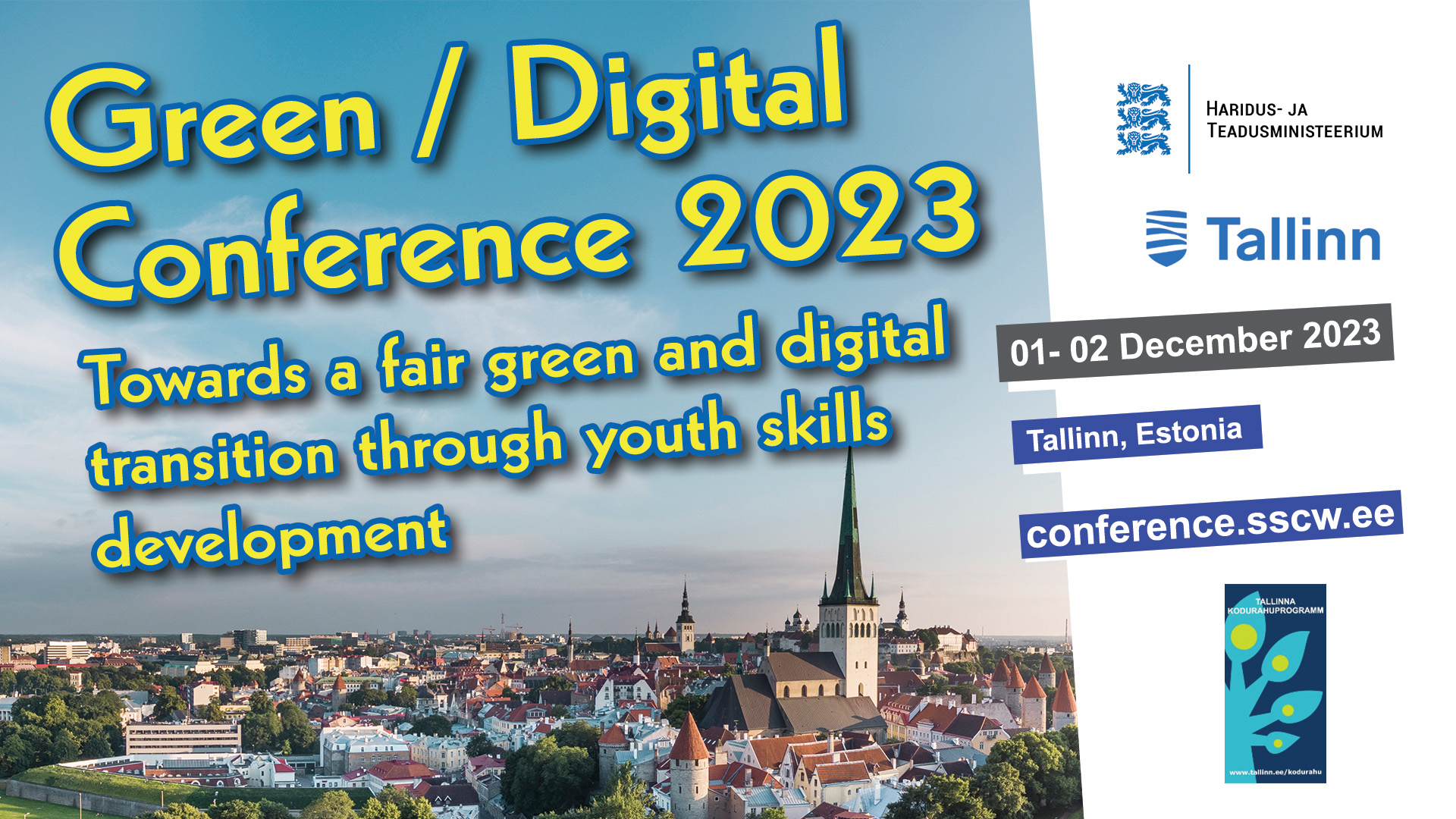
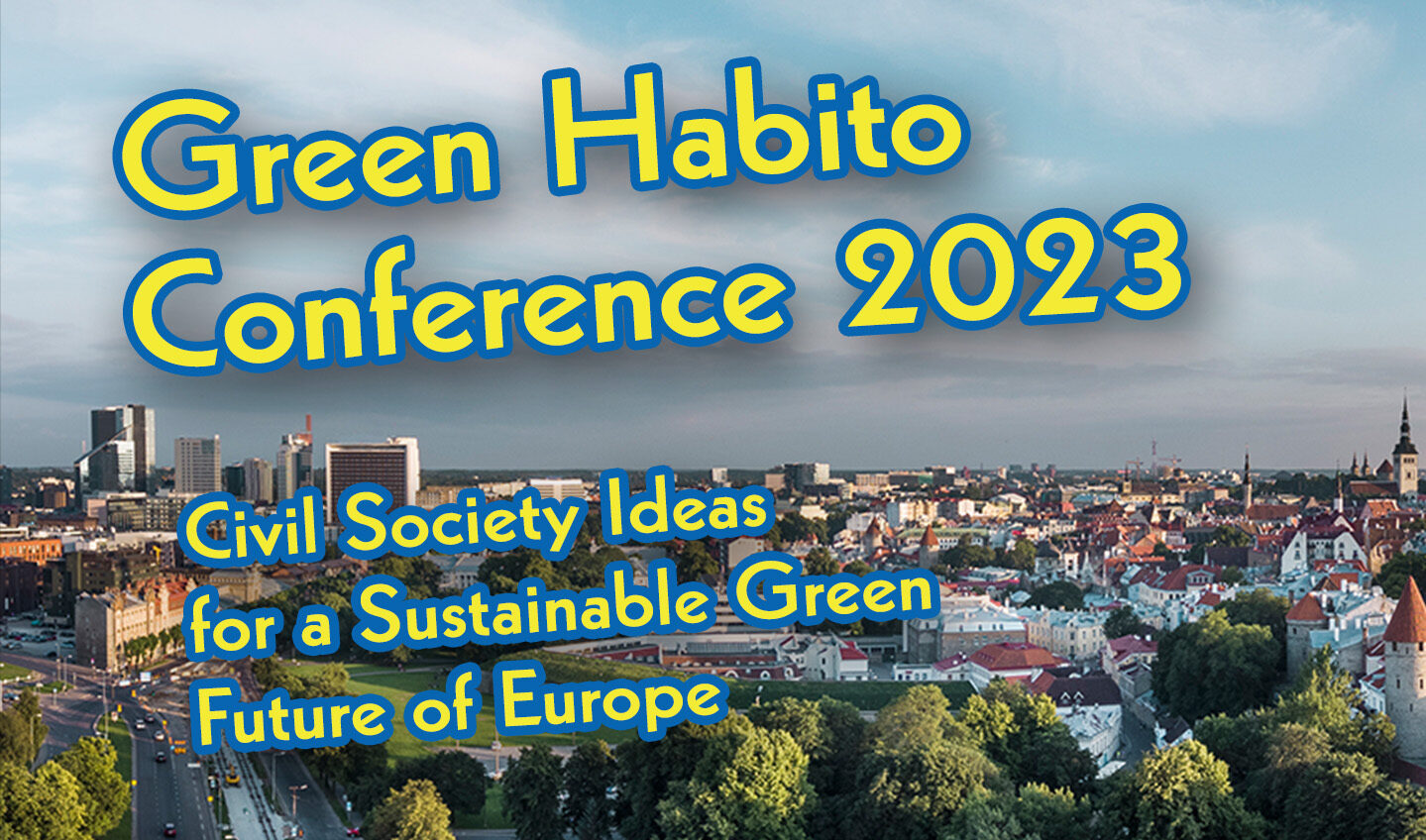
 Security and Civil Society Conference 2023 PROGRAMME
Security and Civil Society Conference 2023 PROGRAMME